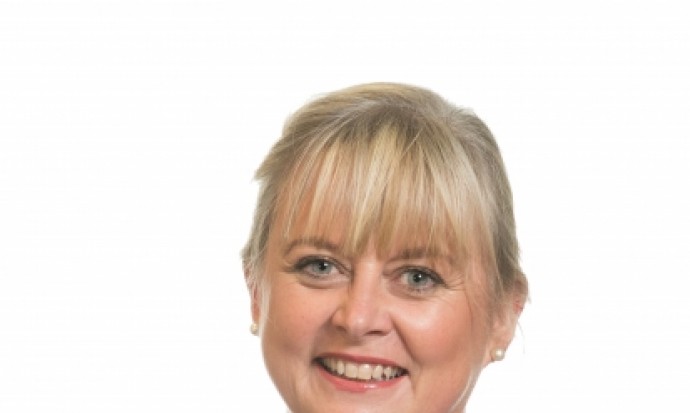Professor Juan Bornman studied at the University of Pretoria (UP) and has been doing research at the institution since 1990, specialising in complex communication needs, severe disability and access to justice.
“Augmentative and alternative communication (AAC) is a niche research area, and UP is the only university in the country that offers it as a postgraduate research area,” she says. “After qualifying as a speech-language pathologist and audiologist, I became Prof Erna Alant’s research assistant when she founded the centre in 1990. As the centre grew, I became Centre Coordinator, then the primary trainer. I discovered my passion, continued with my studies and knew this was the field in which I wanted to work. I was awarded the first PhD in AAC in South Africa.”
Prof Bornman’s research looks specifically at severe communication disability as a multi-dimensional construct that arises from the interaction between an individual’s health status and their physical, social and attitudinal environment. She believes that in the disability field, the researcher can never be a passive onlooker, and must be committed and passionate. She maintains close contact with various disability organisations and provides direct services to many individuals with severe communication disabilities.
Violence against women and children, and especially the frequency and intensity of violence, is of grave concern to Prof Bornman, especially when considering that women with disability face an even higher risk. “Within the sphere of disability, individuals with little or no speech are particularly vulnerable,” she says. “They are voiceless and invisible in society. Perpetrators see people with communication disabilities as defenceless, unable to call for help and incapable of fighting back.”
The United Nations’ Convention on the Rights of Persons with Disabilities recognises the importance of communication as a basic human right, apart from being an essential human need. AAC addresses this basic human right of individuals who require extensive communication support to function in society. AAC strategies include the use of pictures and graphic symbols displayed on communication boards or in books, manual signs (like the ones used in sign language), tablets and computers with AAC software as well as electronic devices with speech output, similar to the device that Stephen Hawking used. The emphasis should not be on how these individuals communicate, but on the fact that, through the use of AAC devices, they are able to express themselves.
Prof Bornman has spearheaded projects to teach women with severe communication disability about sexuality, and trained and supported police officers in taking statements from these women. Similarly, she has trained lawyers, prosecutors, judges, magistrates and social workers in the use of AAC strategies to allow individuals with communication disabilities to participate in the legal process.
Her collaboration with the National Prosecuting Authority resulted in the successful conviction and sentencing of a perpetrator that had sexually abused a young girl with a severe communication disability. The girl was able to testify in court using an electronic symbol-based communication device with voice output. Following this successful case – and many years of involvement with the legal fraternity – South Africa now has case law regarding the use of AAC in court.
These projects have had far-reaching implications, even internationally; the methodology that Prof Bornman developed with some of her students has been adopted and implemented by research teams at Oldenburg University in Germany. The professor is also collaborating with UP colleagues at the Centre for Human Rights in the Faculty of Law, conducting joint training.
Using smartphones for healthcare services and research has led to the development of a new interdisciplinary field called mobile health (mHealth). Prof Bornman recently completed a large international study – titled ‘Using mobile health technology to improve communication for children with developmental disorders’ – with Prof MaryAnn Romski of Georgia State University in the US. It was funded by the National Institutes of Health. The project developed a self-guided mHealth intervention app to provide caregivers of children, mostly from rural households, who have developmental disorders (including autism spectrum disorder, cerebral palsy, intellectual disability and other genetic disorders) with strategies to enhance communication during home activities. The app, Nna le Wena (a Setswana phrase that means “me and you”), was developed following input from potential users, such as caregivers and speech-language therapists, to guide the design.
Another recent highlight for Prof Bornman was receiving a research grant from Special Olympics International to coordinate a large-scale research project across South Africa, India, Pakistan, Egypt and the United Arab Emirates. The project, which commenced in July 2021, focuses on the effect of the Special Olympics on the well-being and quality of life of children with intellectual disabilities and their families.
More than 200 million children under the age of five live in low-middle-income countries, and are not fulfilling their developmental potential. Speech-language pathologists play a critical role in addressing communication skills, thereby positively impacting on development, learning and skills development within a human rights paradigm. A deep-rooted appreciation and understanding of the role of the speech-language pathologist as an advocate and enabler for children with communication disabilities and their families, and its impact on the life outcomes of these children, is required.
That is why Prof Bornman embarked on a project titled ‘Empowering speech-language pathologists in Africa: Leadership for advocacy’ with Dr Brenda Louw of East Tennessee State University in the US. It started with research on leadership in healthcare professions to serve as the theoretical underpinning for a series of custom-designed training modules on leadership and advocacy for the speech-language pathologist profession.
Prof Bornman says her academic role model is Helen Keller who famously said: “The best and most beautiful things in the world cannot be seen or even touched. They must be felt with the heart.” Prof Bornman believes that, like Keller, academics should have deep-rooted curiosity about the world around them. “Academic curiosity – not only about your specific discipline, but towards life in general – is what scholars need if they see their research as an ultra-marathon and not as a sprint,” she says.
Through her research, the professor hopes to end the silence of crimes against people with disability; this fuels her involvement in a variety of strategies that focus on the individual with a disability, the family, disability service providers, law enforcement, the criminal justice system and public policy.
Prof Bornman says that her research matters because the way that people think about disability has not really changed, despite many 21st-century advances having being made across different disciplines. The human rights of individuals are often still tremendously violated. For example, misunderstanding around the sexuality of women with disability are rife. The dialogue around women with disability needs to become part of mainstream discussions around women’s issues, she says. As long as women with disability remain silent and invisible, they will remain on the fringes of society, which increases their vulnerability.
She encourages school learners or undergraduates who are interested in her field to celebrate each small achievement, to become keen observers and to notice small changes – as “that is what provides energy and passion”. “Stay grounded in hope,” she says, “and find a strong team that shares your vision, commitment and drive. My favourite African saying applies: ‘If you want to walk fast, walk alone. But if you want to walk far, walk together.’ If you want to work in the disability field, you must be in it for the long haul.”
In her spare time, Prof Bornman enjoys reading, cooking, gardening and having long philosophical debates with friends and family around the fire about almost anything.

 Stories
Stories
 Video
Video
 Infographic
Infographic
 Story
Story
Get Social With Us
Download the UP Mobile App